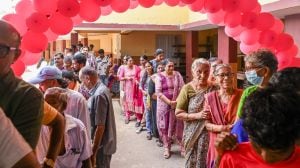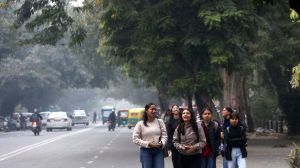Beginning of term
It is easy to fall into the trap of either overstating or understating the importance of the freshly-passed Right to Education Act.
It is easy to fall into the trap of either overstating or understating the importance of the freshly-passed Right to Education Act. On one hand,you could argue that it merely legislates an outcome,insufficiently spelling out solutions to the more nitty-gritty problems. On the other hand,the act is the first real attempt in decades to revolutionise Indias entire paradigm for primary education. Both are true; and focussing on either to the exclusion of the other would be a mistake.
This right has had a long gestation period,from debates in the Constituent Assembly to drafts during the NDA regime and UPA-I. So look first at the good news. As HRD Minister Kapil Sibals speech in the Lok Sabha made clear,the act is certainly a departure in thinking,and one that should be welcomed. The de-bureaucratisation of education,as Sibal put it,is overdue; and so is the participation of civil society in school management committees. This newspaper also welcomes the course-correction attempted by the HRD ministry on openness to the differently-abled; the educational infrastructure could not truly claim to be modern or universal without taking into account the special needs of this large subset of Indias children. And the social requirement that private schools take in disadvantaged children from their neighbourhood is grounded on good empirical work from elsewhere on the effectiveness of such interventions and,for fans of school vouchers,it features for the first time government admitting the possibility that education is something that can be publicly funded but privately provided.
That being said,the battle is not over. Several aspects need still to be put into place,and each of them is essential to the acts effectiveness. The first is clarity on the relative financial burdens on the states and the Centre. The second is that state-level rules and implementation might vary,and the act as passed is very sensitive to those. The third is that,like any rights-based policy interventions,the policys working will depend not just on government but also on the ability of local parents to get organised and to demand what is now,for the first time,a basic right for their children. And that is something that civil society should now start enabling.
- 01
- 02
- 03
- 04
- 05































